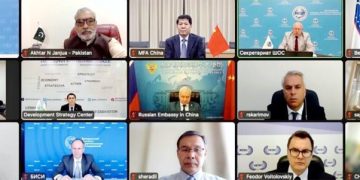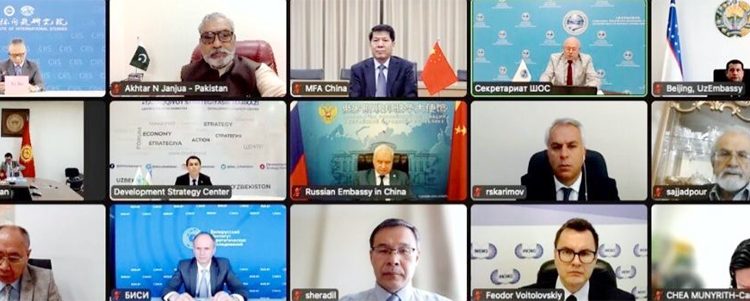By Brig.(R) Akhtar Nawaz Janjua
For decades Muslims have been striving to bring Islamic values to bear on the politics of their societies, advancing many different political models that integrate religious values, religious identity, and politics. Theorists argue that the essential Quranic principle of Amr bil marouf wa nahy anil munkar “command good and forbid evil” – is the justification for the creation of a state which practices the principle. This principle is essentially drawn from the Quran, “You are the best of the nations raised up for the benefit of humanity”; [Quran 3:110]
The compact, or constitution, of Medina that Prophet Muhammad (PBUH) adopted provides a very important occasion for the development of Islamic political theory. After Prophet Muhammad migrated from Makkah to Medina in 622 CE, he established the First Islamic state. Prophet Muhammad (PBUH) was not only the leader of the emerging Muslim community in Arabia, but also the political head of the state of M e d i n a .
A s t h e l e a d e r o f M e d i n a , P r o p h e t Muhammad (PBUH)exercised jurisdiction over Muslims as well as non-Muslims. The legitimacy of his sovereignty over Medina was on the basis of the compact of Medina; the compact that was signed by the Muhajirun (Muslim immigrants from Makkah), the Ansar (indigenous Muslims of Medina), and the Jewish tribes that lived in and around Medina. It is interesting to note that Jews were constitutional partners in the making of the First Islamic state. The compact of Medina thus can be read as both a social contract and a constitution. The constitution is the document that enshrines the conditions of the social contract upon which any society is founded. The compact of Medina clearly served a constitutional function, since it was the constitutive document for the First Islamic state.
An important principle of the Constitution of Medina was that Prophet Muhammad (PBUH) governed the city-state of Medina by virtue of the consent of its citizens. He was invited to govern, and his authority to govern was enshrined in the social contract. The constitution of Medina established the importance of consent and cooperation for governance.
The process of bayah, or the pledging of allegiance, was an important institution that sought to formalize the consent of the governed. In those days, when a ruler failed to gain the consent of the ruled through a formal and direct process of pledging of allegiance, the ruler’s authority was not fully legitimized. This was an Arab custom that predates Islam, but, like many Arab customs, was incorporated within Islamic traditions. One does not need to stretch one’s imagination too far to recognize that in polities that have millions rather than hundreds of citizens, the process of nomination followed by elections can serve as a necessary modernization of the process of bayah. Replacing bayah with ballots makes the process of pledging allegiance simple and universal. Elections, therefore, are neither a departure from Islamic principles and traditions, nor inherently un-Islamic in any form.
The authority of those who have been chosen as leaders, is
recognized in Quran which in a sense extends divine legitimacy to those who have authority.
The third key principle of Islamic governance is consultation, or Shura in Arabic. This is a very widely known concept, and many Islamic scholars have advanced the Islamic concept of Shura as evidence for democratic credentials. Indeed, many scholars actually equate democracy with Shura.
There is a dispute amongst the scholars as to whether the
consultation is advisory or mandatory, but nevertheless it remains a divine sanction. Pro-democracy Muslims see it as necessary, and those who fear democratic freedoms and prefer authoritarianism interpret these injunctions as divine suggestions and not divine Hiats. The Prophet himself left behind a very important tradition that emphasizes the importance of collective and democratic decision making. He said that “the community must never agree upon error.” Consultative governance, therefore, is the preferred form of governance.
There is then much in Islamic sources and Islamic tradition that makes, Constitution, Consent and Consultation the vehicle for governance, such as social justice, economic welfare, and religious freedoms. Islam and its system of governance is not a barrier to, but instead a facilitator of, justice, fair-play, tolerance, development, coexistence, mutual respect, freedom of thought and practices and Shared Destiny and Future.
As far as the Chinese vision of sustained development, win-win cooperation and shared future of Mankind. I believe that China is fully implementing the thought and is working to create favourable external conditions for the their dream of national rejuvenation along with promoting and taking practical and meaningful steps with far reaching effects for building a community with a shared destiny and bright peaceful future.
We all have witnessed what brilliant dividends have been reaped in the last few decades characterized with landmark achievements of immense economic development, new initiatives, and progress for China in particular, SCO countries
in general, and world at large. The resilient Chinese nation has
worked hard and brought in a revolution of another kin:. ECONOMIC PROSPERITY with a dream and objective of sharing it with the entire world.
For global cooperation, peace, and a shared future, China under the dynamic leadership of President Xi Jinping has been working and advocating a vision … Vision of common prosperity, cooperation and collaboration for achieving the goal of persistent development and shared destiny with comprehensive and sustainable security.
The vision of human community with a shared future is an integral part of President Xi’s thought on Socialist Democracy with Chinese Characteristics for the New Era.
This grand narrative has become more than a new foreign policy doctrine for China. It reflects an intellectually coherent analysis by the Chinese leadership regarding global affairs and represents China’s latest attempts to answer the most fundamental question as to where humanity is heading in times of greater economic interdependence and growing political divergences.
Actually the China’s democratic vision is based on certain key aspects. For example; To promote development that is open, cooperative, and beneficial to all. Pursue development and work for a peaceful international environment. Protecting and promoting world peace by building a community with shared future.
Chinese development projects of integration and connectivity have paved the way for promoting innovative, coordinated, green, and open progress that is for everyone. In this aspect, bridging gaps in development and fostering shared prosperity is crucial to achieving set targets.
Looking back on the history of the world, we can see that all those who worked for the peace, prosperity and goodwill to mutual respect and coexistence thrived successfully and those engaged in acts of aggression, hate and destruction, in the end, met with failure. A prosperous and stable world provides China with the opportunities, and conversely sustainable development offers opportunities for the world. There are obstacles and challenges to stall the progress and cooperation via coercion, alliances, strategic abhorrent objectives and leanings. The way forward lies in equality, mutual learning, dialogue, and international inclusiveness. Respect for the Sovereignty of all nation states, for their Territorial Integrity, for their Cultural Moorings, for their Traditional Sensitivities and Peaceful Coexistence of all and with all are the key characteristics for the global cooperation.
This proposal and the concept of building a community with shared future for mankind as presented by President Xi Jinping has become a strong narrative in transforming the world and formation of global alliance. This idea can help countries to surmount and curtail differences of all kinds and tackle challenges and threats with common resolution and achieve solutions because tolerance, mutual respect, fair dealings, cordial relations, promoting win-win cooperation, and dialectic balance are the major characteristics of the idea of building a community with shared future.
In a nutshell, presently, China is passing through one of its best ever periods of development and economic prosperity, while the world is undergoing the most profound and unprecedented changes where pandemic, terrorism, global warming, water and energy scarcity, food shortages, subjugation and illegal occupations, unfair distribution of wealth, usurpation of resources of poor and weak states and blatant interferences killing millions of innocents on the pretext of false themes and compulsive lies; Chinese vision of Win-Win Cooperation, Shared Destiny and Future is a monumental initiative where all nations need to step up and be a part.
(The article is based on
the speech delivered by Brig.(R) Akhtar Nawaz Janjua Sr. Vice President/ Executive Director, Centre for South Asia & International Studies Islamabad ( CSAIS )at the webinar organized by China Institute of International Studies -CIIS)




